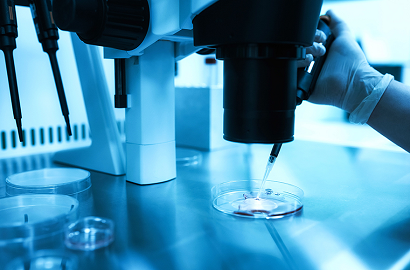Barcelona to host European embryo implantation project

Comprising 15 public and private bodies, it has received 3.5 million euros from the European Commission.
The Implanteu project, led by the Eugin group of assisted reproduction and fertility clinics at the Basic Research Centre located in the Barcelona Science Park, has received support from the European Commission, which has granted it a 3.5-million euro grant within the framework of the Marie Sklodowska-Curie Doctoral Network Actions (MSCA-DN).
Behind the project is a European consortium of 15 public and private bodies willing to innovate in embryo implantation, which is still the greatest challenge in assisted reproduction requiring a multidisciplinary approach. Their joint work will combine expertise in reproductive biology, biotechnology, bioengineering, medicine and physiology with cutting-edge technologies, from stem cell-based embryo models to organoids, machine learning and organs-on-a-chip.
Enigma in the scientific community
One of the aims will be to investigate why embryo implantation fails, even after advanced medical intervention. Today it remains a major enigma for the scientific community, due to the complexity of the mechanisms that regulate embryo-endometrial interactions in humans. In fact, according to the European Society of Human Reproductive Medicine and Embryology (ESHRE), and depending on the age of the woman and whether the embryo is chromosomally normal, between 30% and 70% of pregnancies fail due to implantation failure.
The Implanteu project aims to reverse this situation and change both reproductive science and clinical practice through a comprehensive, multidisciplinary approach. By improving understanding of the factors affecting implantation success, they aim to increase success rates and offer more personalised treatments.
Another key objective is to train the next generation of leading researchers in reproductive sciences, equipping them with the skills needed to revolutionise the scientific and clinical approach to infertility. To do this, the project includes a cross-cutting training programme for young doctoral students.
Cutting-edge science
Project Coordinator and Scientific Director for the Eugin group, Dr Mina Popovic, says Implanteu represents “a transformative step in addressing the complexities of embryo implantation through cutting-edge science. It also reflects our commitment to advancing reproductive medicine by empowering the next generation of scientists to shape the future of our field.”
Group CEO Marcio Fernandes is proud that Eugin is leading this project, “which fosters international collaboration, drives high-impact research and connects science with clinical care, offering hope to families around the world.”
Alongside Eugin, academic and research institutions and biotechnology startups, such as the Medical University of Graz (Austria), KU Leuven (Belgium), Ghent University (Belgium), Leiden University Medical Centre (The Netherlands), the University of Milan (Italy), University College Dublin (Ireland), the University Medical Centre Hamburg-Eppendorf (Germany), the Institute of Molecular Biotechnology (Austria) and the Polytechnic University of Valencia (Spain) are all participating in Implanteu.
Photo: Eugin Group




